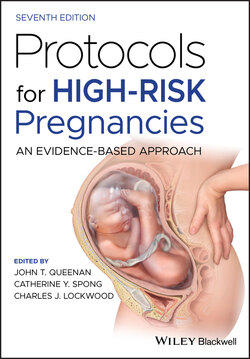Читать книгу Protocols for High-Risk Pregnancies - Группа авторов - Страница 17
Intervention and referral to treatment
ОглавлениеScreening, brief intervention, and referral to treatment (SBIRT) is a comprehensive, integrated public health approach used to identify and deliver services to those at risk for substance use disorders and has the potential to reduce the burden of substance use in pregnancy. SBIRT may be implemented in a variety of healthcare settings and adapted for culturally diverse populations. The Department of Health and Human Services Substance Abuse and Mental Health Services Administration (SAMHSA) provides many useful materials to facilitate implementation of SBIRT which consists of three basic components.
1 Screening by a health professional using validated instruments can quickly assess the severity of substance use and identify the appropriate level of care.
2 Brief intervention focuses on increasing insight and awareness regarding substance use and motivation toward behavioral change.
3 Referral to treatment provides those identified as needing more extensive treatment with access to specialty care.
After screening, women at moderate risk should receive a brief intervention which typically involves counseling sessions, approximately five minutes in length, tailored to the severity of the identified alcohol problem. During the first meeting, the provider should state her/his concerns and help to set goals. Educational materials should be provided. Routine follow‐up is essential; subsequent visits should involve encouragement, information, and reevaluation of goals. Wright and colleagues (Table 1.1) have modified SBIRT for use in pregnant women, leveraging the motivation inherent in the desire to have a healthy pregnancy.
Table 1.1 Four components of brief intervention
Source: Wright et al. (2016). © 2016 Reproduced with permission of Elsevier.
| Raise subject | “Thank you for answering my questions – is it OK with you if we talk about your answers?” “Can you tell me more about your past/current drinking or drug use? What does a typical week look like?” |
| Provide feedback | “Sometimes patients who give similar answers are continuing to use drugs or alcohol during their pregnancy.” “I recommend all my pregnant patients not to use any alcohol or drugs, because of the risk to you and to your baby.” |
| Enhance motivation | “What do you like and what are you concerned about when it comes to your substance use?” “On a scale of 0–10, how ready are you to avoid drinking/using altogether? Why that number and not a lower number?” |
| Negotiate plan | Summarize conversation. Then: “What steps do you think you can take to reach your goal of having a healthy pregnancy and baby?” “Can we schedule a date to check in about this next time?” |
Women who are unable to reduce or eliminate consumption of alcohol during pregnancy should be referred for more intensive intervention.
